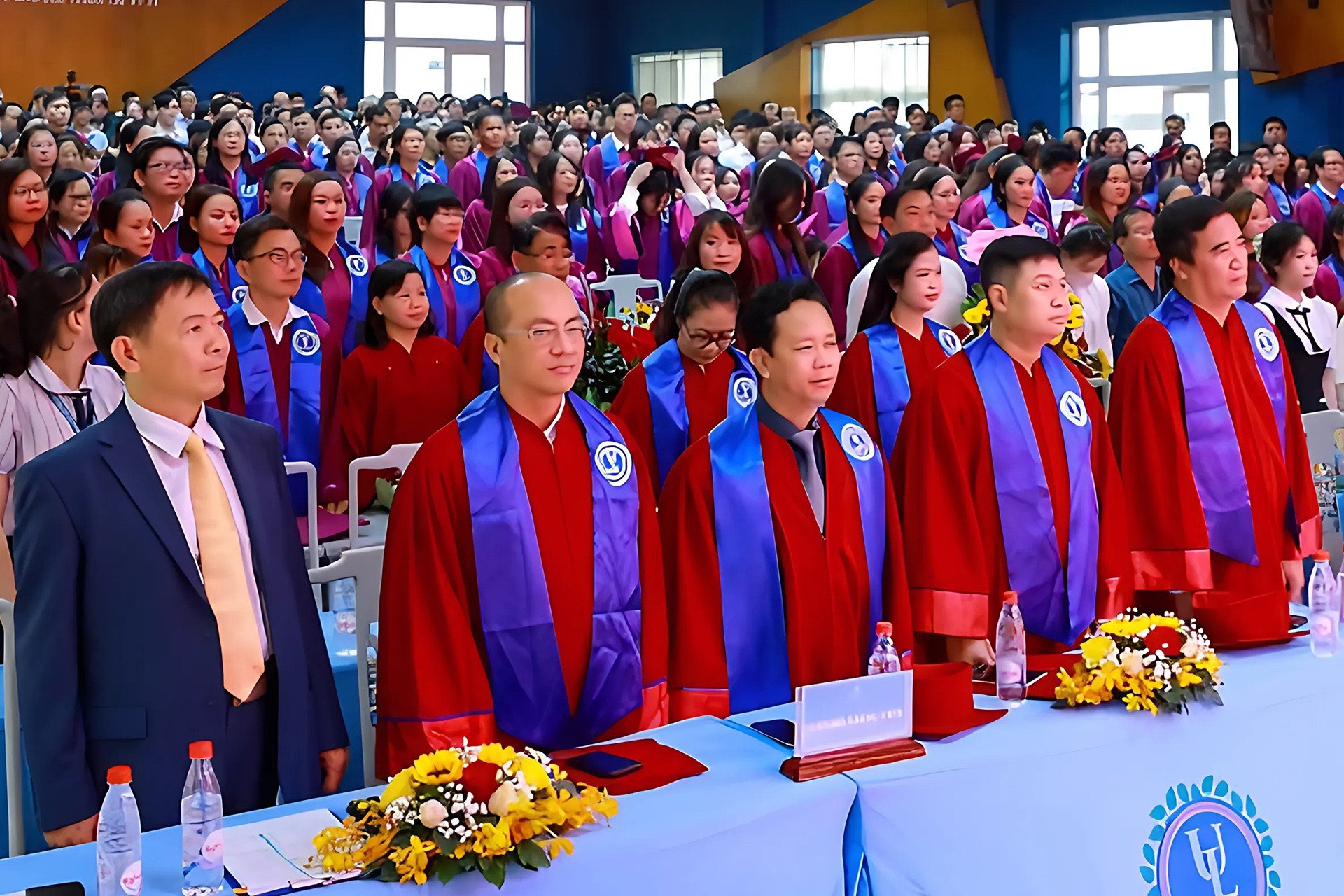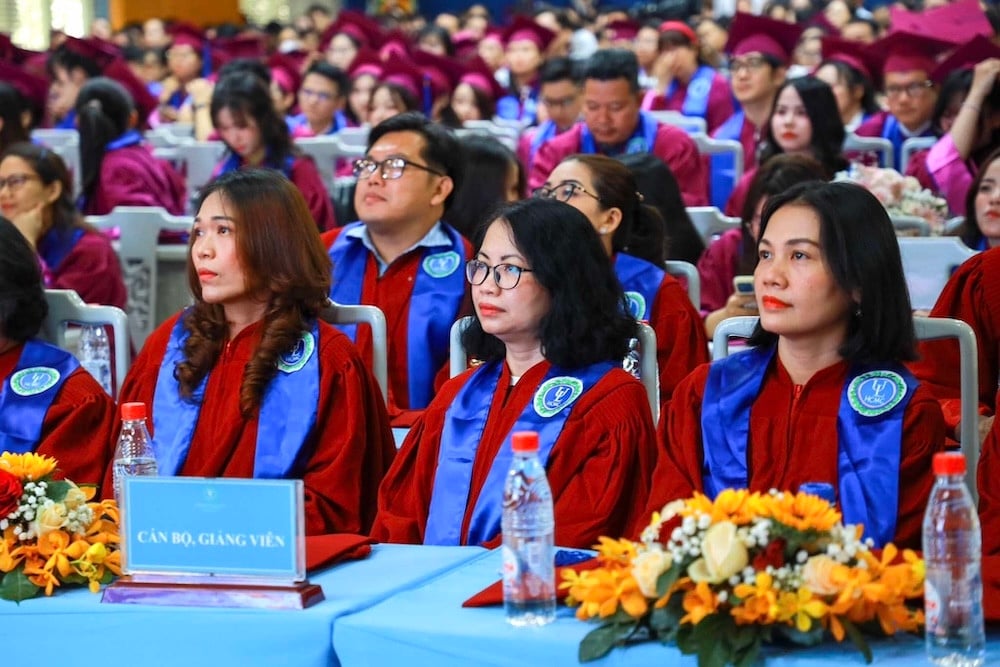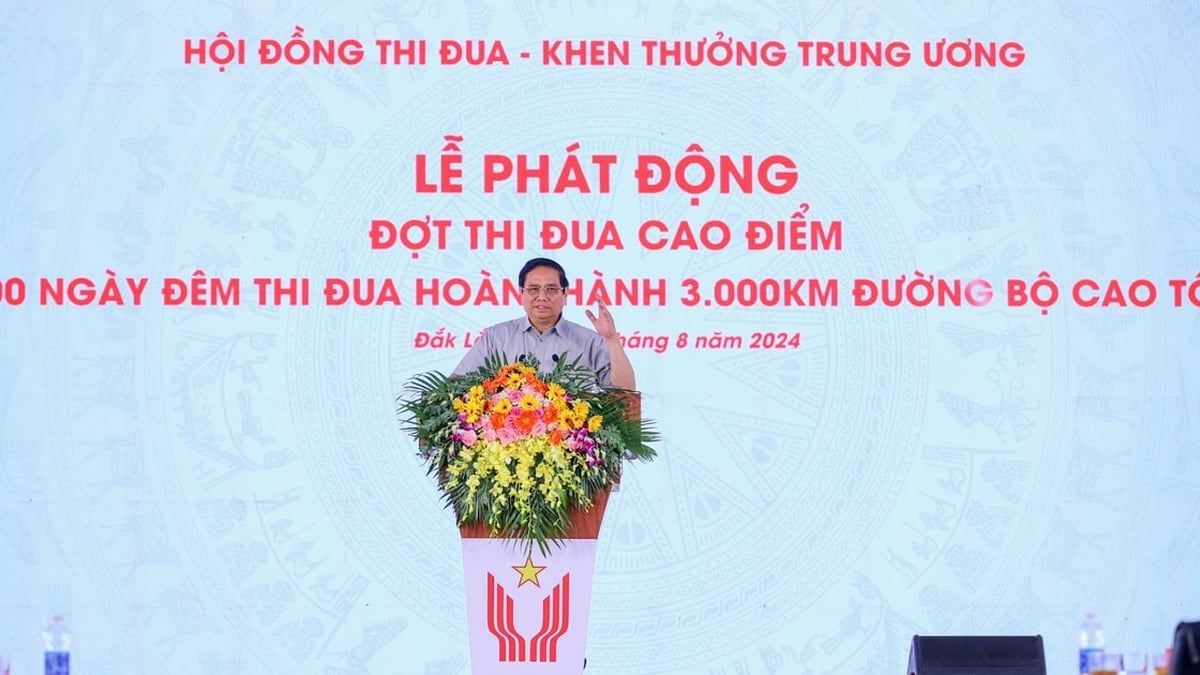According to experts, not all universities pay high salaries and not all professors and doctors are the same, but there are people with real talent who receive billions/year.
A series of articles on VietNamNet reflecting on the income of professors and doctors at some universities has recently received the attention of many readers as well as researchers and education experts. Many people are happy that scientists now receive a worthy income, but there are also doubts about whether this income is real, and which universities can pay such a high salary?
'Professors and doctors with a total income of billions/year are not simple and are often rare'
Dr. Pham Hung Hiep, Director of the Institute of Educational Research and Knowledge Transfer (Thanh Do University) said that it is possible for a university lecturer to have a total annual income of billions of dong, but it is not simple and is often rare.
“Through observation, in most large universities, at least a few, at most a few dozen cases achieve such income levels, and require very high qualifications from lecturers,” said Dr. Pham Hung Hiep.
According to Mr. Hiep, in the end, lecturers' income comes from the university, besides the fixed salary, there are only 3 sources: From teaching additional programs, from research and from knowledge transfer.
He analyzed: Schools try to push up the salary floor for lecturers (with guaranteed teaching hours and research) and they can reach 20-30 million VND/month.
From the source of additional teaching, the average level of teaching international programs today, each lesson can be up to 500,000-1,000,000 VND. Thus, any lecturer who is willing to teach joint programs or international programs at the undergraduate or master's level can receive 200-300 million VND per year.
In terms of research sources, top schools may have a policy of rewarding an international article from 50-100 million VND, even 200 million VND. However, in schools with low reward policies, a Q1 article may only be rewarded 10-40 million VND.
“However, it takes a lot of time to publish an article, on average about 1-1.5 years/article. Even if the reward is 200 million VND, scientists must have previously spent a lot of money on research such as buying experimental equipment, hiring student assistants... Not to mention, when the bonus for an article is divided among co-authors, each individual does not get too much,” said Mr. Hiep.
According to Mr. Hiep, lecturers who earn billions of dong per year must satisfy conditions such as schools having a bonus policy of up to 150-200 million dong per article (usually autonomous schools); conducting research and publishing articles from start to finish by themselves,...
Mr. Hiep said that there may be some people who have a large number of published articles in a few years and have high income, but the nature of that income is the result of a series of previous years.
“No lecturer/scientist can ‘burn continuously’ for many years in a row. Like me, the year I called the ‘peak’, I did 15 papers, but then it dropped to 7 papers and last year only 6 papers. The year with 15 papers was actually the result of the efforts of many previous years. After that, I did not have enough strength to do many papers, because I had to focus on quality. The university where I work does not reward more than the prescribed number of papers in a year and the bonus is not significant. I think somewhere there will be people who earn up to several hundred million a year from scientific research, but that number is very small,” said Mr. Hiep.
According to Mr. Hiep, the source of knowledge transfer is often only available to a few lecturers in specific fields close to the market such as law, technology, environmental treatment, etc. through external consulting contracts.
"Thus, one must be a competent, energetic lecturer or work in an industry or field with high market demand to have a chance to earn billions of dong per year," said Dr. Pham Hung Hiep.
The principal of a public university in Ho Chi Minh City also said that the money that universities pay for lecturers is the tuition fees of students. Schools with high tuition fees have high incomes for lecturers. Schools with low tuition fees have low salaries for lecturers.
“Our school collects tuition fees according to state regulations, and cannot pay professors and doctors nearly a hundred million VND/month. About 100 professors, associate professors and doctors of the school are currently civil servants receiving salaries according to the state's prescribed coefficient. After spending the money, if there is any surplus, we will pay additional income according to regulations. What is valuable is that they are all dedicated to their profession and the school for the common cause,” he said.
According to him, 80-90% of the revenue of universities in Vietnam is currently tuition fees. So the question is when paying professors and PhDs nearly 100 million/month, what is the task placed on their shoulders? He predicts there are 2 forms: The school maintains its name to gain prestige, or has clear annual KPIs for each person, such as how many articles a professor or PhD must write, how many graduate students must guide, how many classes must be taught...
'High income is to motivate, not because of academic titles or degrees'
Sharing with VietNamNet , a principal in Ho Chi Minh City said that although not yet financially independent, his school ensures that each PhD earns at least 25 million VND/month. The average income of PhDs in the school ranges from 45-50 million VND/month, professors and associate professors 50-60 million VND/month. Their total average income/year is about 600 million VND/person/year.
“In other schools, lecturers’ income may be paid at the end of the year, but we believe that each month is a living. If a PhD only has a salary of 15 million, we will compensate them with 10 million so that they receive 25 million that month. We will advance this 10 million in advance, and at the end of the year, we will deduct it from the average income,” he explained.
Regarding income, he said that professors and doctors are senior lecturers, with salaries according to the state ranging from 14 to 18 million VND. In addition, because the school belongs to the Ho Chi Minh City People's Committee, officials enjoy special policies according to Resolution 98 of the City People's Council on the level of additional income for cadres, civil servants and public employees; Teaching allowance for doctors is about 150,000 VND/lesson; associate professors over 200,000 VND/lesson; In addition, professors and doctors receive income from scientific research with ABC topics that will cost from tens to hundreds of millions. Therefore, each professor and doctor who conducts a number of scientific topics will have an income of up to hundreds of millions.
However, according to him, for professors and doctors, income is only one part, what is important to them is the working environment. “A clean, non-oppressive, open working environment will attract capable people,” he said.
Professor Truong Nguyen Thanh (University of Utah, USA), currently Vice Chairman of the Advisory Board of Hoa Sen University, said that 8 years ago, when he returned to Hoa Sen University as Vice Principal, he was paid a salary of 80-90 million VND/month, about ¼ of the salary he received in the US. “However, I think this level is acceptable in the country. The school pays for my insurance, but I have to pay my own personal income tax,” Mr. Thanh said.
According to Mr. Thanh, some universities can pay up to nearly 100 million/month for professors and doctors, which is a good sign. If competent people are paid such income, they will focus on improving the quality of teaching and scientific research, not "running around, selling their lungs" leading to a loss of professional concentration. On the other hand, universities want to develop quality to a new level, lecturers with potential and capacity need to be given the opportunity to engage in in-depth research.
But according to Mr. Thanh, to enjoy such income, the job requirements that universities set for professors and doctors must be commensurate. “Income is competitive to motivate work, not because of academic titles or degrees. Not all professors and doctors are the same,” said Professor Truong Nguyen Thanh.
Professor Thanh also believes that it is better for universities to pay professors and PhDs a competitive salary than to reward them based on international articles. When paying by article, scientists will only pursue publication, while the quality of the article is not certain. On the other hand, the number of articles does not truly reflect the capacity and influence of scientists as the citation index (H-index) does. Rewarding by article also leads to financial risks that scientists completely "sell" to a third party to benefit, while they themselves do not actually participate in the research process.

Professors and PhDs earn billions of dong per year from tuition fees: Need to create commensurate value

Professors and doctors with incomes of billions of dong/year, no longer have to sell research papers?

Professors and doctors receive income of nearly 100 million VND/month at university
Source: https://vietnamnet.vn/giao-su-tien-si-co-thu-nhap-tien-ty-nam-co-nhung-qua-kho-2378498.html


































































































Comment (0)